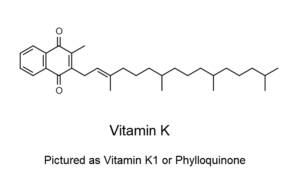The Potential Health Benefits of Collagen

Recently, collagen has been surging in popularity as a nutritional supplement. And while the research does suggest some benefits, marketing hype with unrealistic promises are all too common.
What Is Collagen?
Collagen is a connective tissue protein that provides the scaffolding that holds the body’s cells, organs, muscles and other components together. As a protein, it is composed of amino acids. Yet, on its own, it is not considered a complete protein. In other words, collagen does not contain all of the amino acids needed to sustain health. As a supplement, collagen is usually derived from one of four different sources: bovine, porcine, chicken or fish.
What Are the Reported Benefits?
Since collagen contains the building blocks for connective tissue, supplementing with collagen is usually used for conditions with a connective tissue component. Conditions that have been researched include:
- Skin health, aging and wrinkles
- Joint pain and recovery
- Bone health
- Athletic performance
- Weight loss
Collagen and Skin
Skin, to a large degree, is composed of connective tissue. Probably the most well studied effects of collagen are its effects on skin. And it’s also likely one of its most sought after benefits. Unfortunately, studies and reviews on treatments for skin conditions and aging are often of poor quality (Williams 2021). While a recent meta-analysis claims that studies show improved hydration, elasticity and reduced wrinkles, the wide range of results make them somewhat suspect (de Miranda 2021, Peres 2021).
Based on the research, I think it’s likely that collagen does have at least modest benefits for skin health. Hopefully, additional research can help to clarify the full extent of its effects.
Joint Pain and Recovery
Joints, like skin, also contain a lot of connective tissue. Using collagen as a raw material to help the body rebuild joint tissue would seem to make intuitive sense. A review of clinical trials on collagen for arthritis found significant results. Stiffness was most strongly reduced with a modest 16% reduction in reported pain levels on average (Garcia-Coronado 2019).
Collagen may also have a place during injury recovery. After a sprained ankle, it’s not unusual for the joint to develop instability. This can predispose to further ankle injuries. A study in athletes with ankle instability found both perceived improvements and decreased reinjury rates with collagen supplementation (Dressler 2018). A similar study used collagen in combination with exercise therapy for achilles tendon injuries. Collagen supplementation decreased the time needed for healing and return to normal use (Praet 2019).
Collagen and Bone Health
When people think of bones, they think of calcium. However, bones also contain significant magnesium and phosphorus with collagen as the underlying scaffolding. As such, research has explored whether or not there are benefits to bone health with collagen supplementation.
Early research suggested that collagen when combined with medication for osteoporosis was more effective at preserving bone health than medication alone (Moskowitz 2000). Later research continued to find benefits, with one study using calcium combined with collagen finding a decrease in bone loss as compared to controls (Elam 2015). A separate study using collagen peptides found a small but significant increase in bone mineral density. After one year of supplementation, women had slight improvements in bone density of both the spine and femur or upper leg bone (König 2018).
Athletic Performance

Protein supplements are often used in an attempt to increase muscle and improve physical performance. Studies have explored collagen as an adjunctive component to an exercise regimen. In young men, one study found increased body mass, increased fat-free mass and greater strength as compared to resistance exercise training alone (Oertzen-Hagemann 2019). A study in premenopausal women found similar benefits with increases in fat-free mass and strength with collagen supplementation (Jendricke 2019).
A study in older frail men with muscle loss found that collagen supplementation combined with exercise more effectively reduced body fat and improved strength (Zdzieblik 2015).
Weight Loss
While some of the studies above did find reductions in body fat with collagen, weight loss benefits are likely quite modest at best. One recent study compared collagen and whey protein and found that whey protein increased metabolic rate and decreased fat. Collagen had no effect (Giglio 2019).
Conclusion
Collagen supplementation is a form of protein supplementation that specifically provides the building blocks for connective tissue. While more research is necessary, it may have benefits for improving skin, helping decrease arthritis pain, assisting in recovery after joint injuries, reducing bone loss and modest benefits for improved muscle strength when combined with exercise training.



